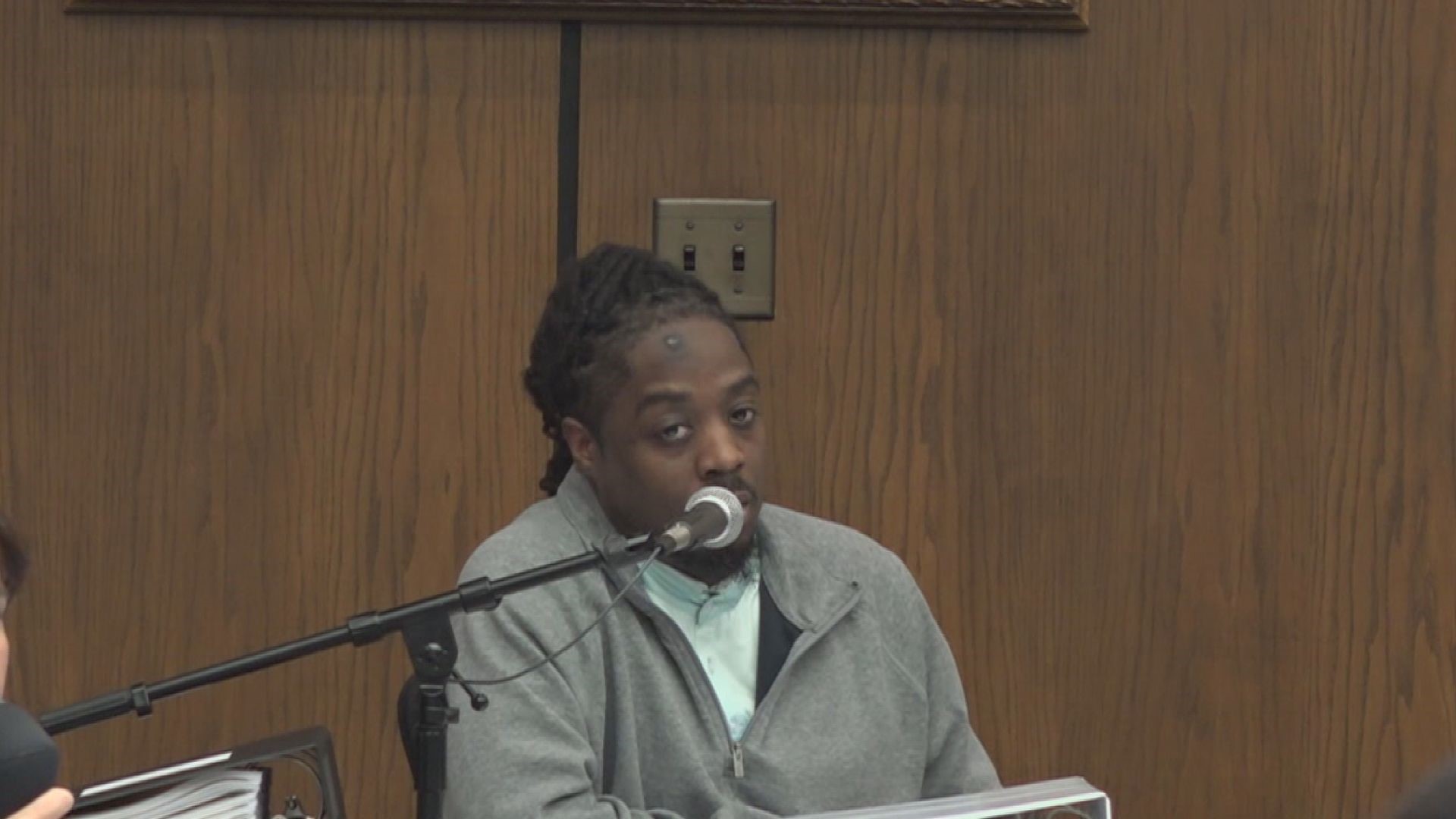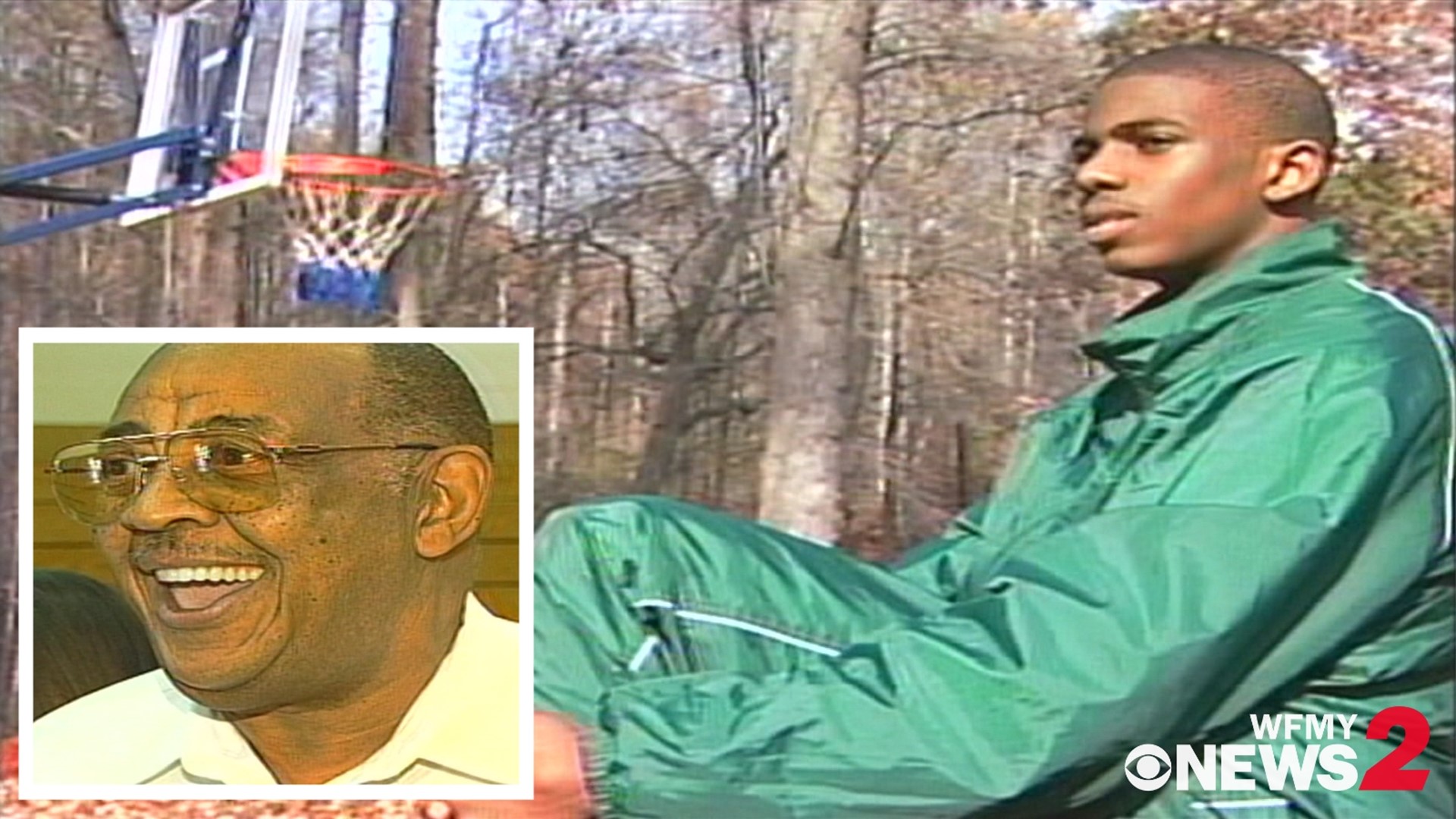WINSTON-SALEM, N.C. — Day six of hearings for the four men convicted of killing NBA star Chris Paul's grandfather are underway Monday. A three-judge panel must decide if they are innocent of the crime from 20 years ago.
See the previous story on the court proceedings Friday.
The judges continued to hear from a key witness in the case who recanted her testimony years later, saying law enforcement coerced her.
Jessicah Black was 16 when the crime happened. She said detectives repeatedly told her she was lying when they interrogated her, only letting up when she repeated what they wanted to hear.
"It was just easier to tell them (police) what they wanted to hear," Jessicah Black said on the stand Friday.
On Monday, she described the defendants as she knew them when they were kids. Here's some of what our Amber Lake reports Black said in court:
- "Jermal was always quiet and to himself."
- "Rayshawn was like a firecracker. He could be cool or off his rocker."
- "Nathaniel was calm, cool, and collected."
- "Then you had Bubba...he would be cool, then he would come across as a bully."
- "But that was when we were kids."
Hunter Atkins, the reporter Black recanted her testimony in 2019, offered to pay Black's car payments. She wanted to decline, but instead, she took the money.
“I tried not to take that,” Black explained. “I told him just like when he offered to make the car payments. I told him I didn’t want it. They kept on, so I finally took it so, I didn’t lose my car.”
Julie Bridenstine, a staff attorney for the North Carolina Innocence Commission, read testimony from one of the defendants who died three years ago - Dorrell Brayboy. She interviewed Brayboy back in March 2018.
Bridenstine read a statement where Brayboy said officers told him he wouldn't be able to go home the night of the murder unless he admitted involvement as "being the lookout" and said officers talked to him about needle injection.
- "He told me I could get lethal injection if I kept lying." -- Brayboy statement
- "I thought I was going to go home that night...I just wanted to say something to get it over with." -- Brayboy statement
- "We done did all this time for what? For nothing." -- Brayboy statement
How we got here:
Paul's grandfather, 61-year-old Nathaniel Jones, was found beaten to death in the carport of his Winston-Salem home in November 2002 - one day after he'd seen his grandson commit to playing basketball for Wake Forest University.
Two years after the killing, brothers Rayshawn Banner and Nathaniel Cauthen were convicted of murder and robbery.
In 2005, police arrested three others.
All five were teenagers at the time of Jones' death, and all have stood by their innocence. They'd later be known as the 'Winston-Salem 5.'
One of the men convicted, Dorrell Brayboy, died in 2019. He was stabbed shortly after he was released from prison. His record could be expunged posthumously, but only if the four other defendants are found innocent.
In 2020, an eight-member panel of the North Carolina Innocence Inquiry Commission held a hearing to review the claims.
At that hearing, a key witness recanted her testimony, saying she lied in court because she was coerced by law enforcement.
The commission found sufficient evidence of innocence to have the case reviewed, and as a result, the exoneration hearings began Monday in Winston-Salem.
Who are the Winston-Salem 5 and where are they now?
- Brothers Nathaniel Cauthen and Rayshawn Banner are still incarcerated. Both were sentenced to life in prison. During the initial trial, they were found guilty of first-degree murder and robbery with a dangerous weapon.
- Christopher Bryant and Jermal Tolliver spent 12 years in prison before being released in recent years. During the initial trial, they were found guilty of second-degree murder and common law robbery.
- Dorrell Brayboy died in a stabbing in 2019 following his release from prison.
Here's a recap of week one of the hearing:
- One of the defendants, Jermal Tolliver, testified and maintained his innocence. He said he lied to detectives back then, claiming he told them what he thought they wanted to hear.
- A key witness in the case, Jessicah Black, testified in the case and said she was coerced into giving a false statement. "It was just easier to tell them (police) what they wanted to hear," Jessicah Black said on the stand.
- The three-judge panel also heard from a shoe impressionist expert, who said evidence of a Nike Air Force One shoe print from the case was "misleading."


